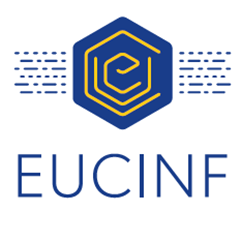In the frame of the European Defence Fund 2022, the European Commission has selected a consortium coordinated by Airbus Defence and Space for the EUropean Cyber and INFormation warfare toolbox (EUCINF) project.

The consortium is composed of 22 complementary partners from 12 countries.
This multi-profile consortium made-up of European champions in AI and Cyber, platform integrators, effectors and systems developers covers the entire spectrum of Cyber Information Warfare (CIW) related competences.
In recent years information operations have changed in scale by expanding beyond the physical space into the digital one due to the increasingly widespread use of the Internet and Social Media. Both fields offer now a plethora of opportunities to potentially manipulate perception of facts and influence decision making.
In the current highly connected world, an increasing number of influence operations have recently been observed making Cyber and Information Warfare (CIW) one of the most strategic domains of recent conflicts. The European Union and European Member States are increasingly targeted by influence operations and coordinated disinformation campaigns. Different methodologies, including various tactics, techniques and procedures are equally used by state sponsored adversaries and proxies.
Weapons of information warfare combined with cyberattacks have been utilised in a variety of contexts to undermine national, European and international policies. In the civil domain disinformation has been actively tackled by the EU institutions since 2015 through many initiatives, such as the creation of the project EUvsDisinfo.
In the defence domain the structuring of the Cyber and Information domain is already a priority for North Atlantic Treaty Organisation (NATO) and the EU and nations. On another level, in its National Strategic Review, France supports the instruments developed by the European institutions, including a toolbox against interference and foreign manipulation of information.
EUCINF will now address the development of a coherent European library of configurable software components easy to integrate into Cyber and Information Warfare systems, with capabilities in detection, analysis, fusion, and threat targeting to support activities of Cyber and Operational Centres.
EUCINF is the unique European industrial approach proposing a reference repository of AI-based configurable applications as well as an experimental platform to comprehensively address information operation challenges in the digital space. As capability demonstrations, EUCINF will implement three operational CIW scenarios and define precise use cases based on MoDs end users requirements in compliance with legal regulations and societal expectations.
The EUCINF project will address studies, design, prototyping, testing, and qualification of a software toolbox system offering multi-purpose tools, easily deployable into European operational systems. Technical specifications of a European CIW toolbox system will be derived from these requirements in order to finally achieve and demonstrate pertinence and performance at strategic, operational and tactical levels, as well as in a converged civil-military cyber and information warfare.
Airbus Defence and Space will contribute its know-how in intelligence and cyber solutions and its ability to coordinate complex projects and programmes. More globally, large companies will bring their defence systems know-how, capabilities and means to support use cases whereas in parallel key technological skills will be also brought by dedicated SMEs and to mid-caps.
EUCINF will benefit from a well-balanced consortium composed of large companies (Airbus, Hensoldt, Indra, Leonardo); Mid-Caps (BV-Tech Spa, Space Hellas); SMEs (Anozr Way, Approach, Avisa Partners, Bloom, Cybernetica, Cyber Services, EclecticIQ, EIGHT BELLS, Sahar, Storyzy, Tilde); research organisation (AIT) as well as universities (Universidad Politecnica de Madrid, Universidad de Murcia).
The EC will now enter into grant agreement preparation with the selected consortium. Pending a successful conclusion of these preparations, the grant agreements are expected to be signed before the end of the year.


